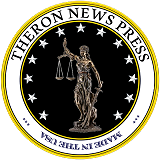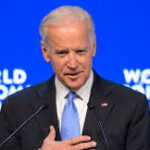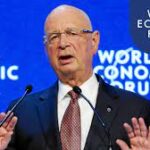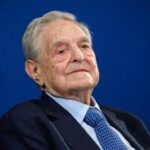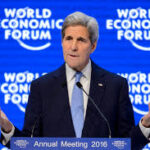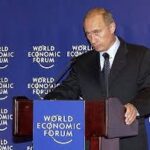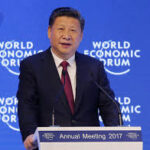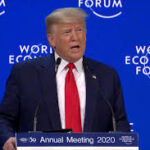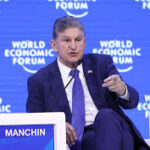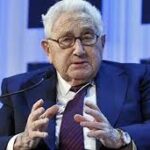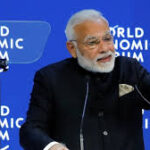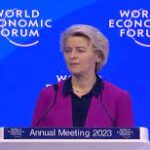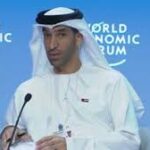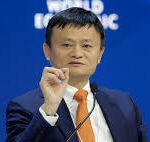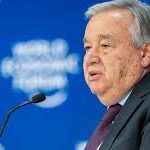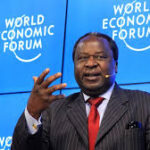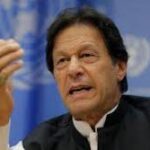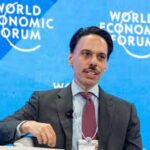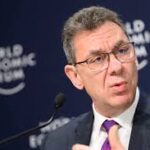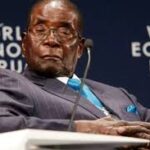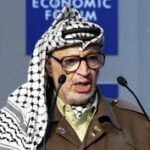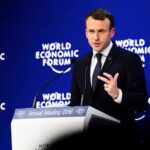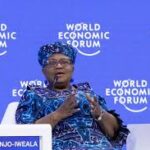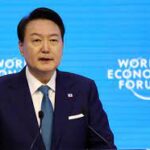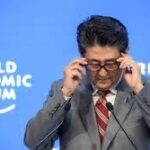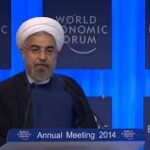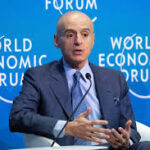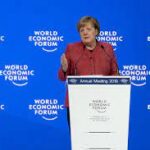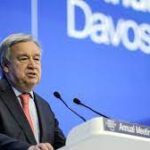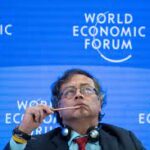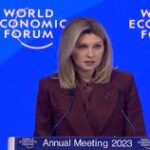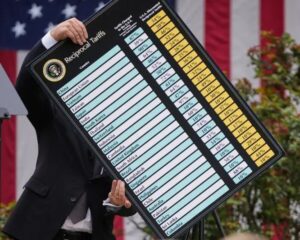Who is really in charge of Biden and the EU and the NWO and Climate Change?
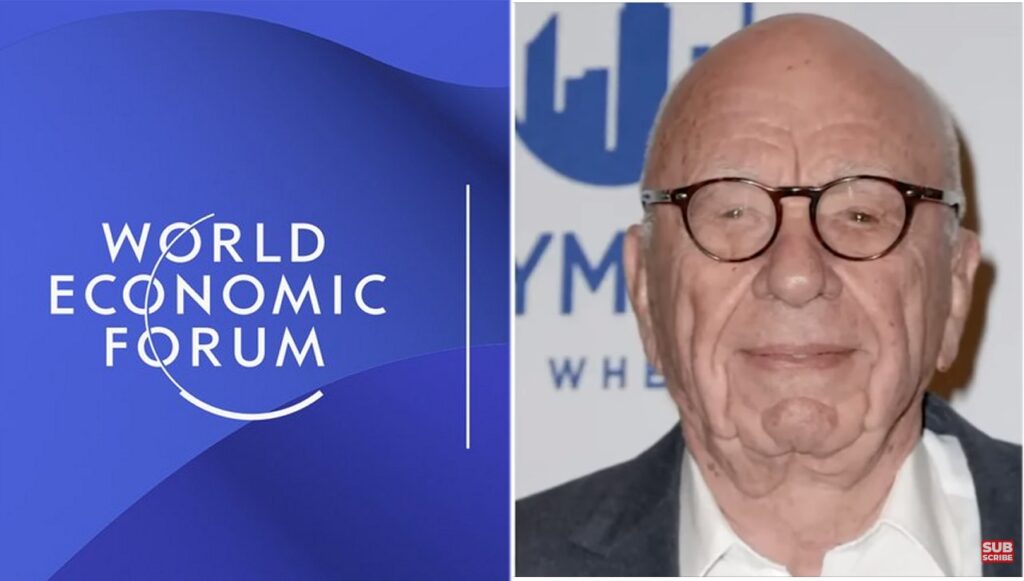
World Economic Forum
The World Economic Forum (WEF) is an international non-governmental and lobbying organisation for multinational companies based in Cologny, Canton of Geneva, Switzerland. It was founded on 24 January 1971 by German engineer Klaus Schwab. The foundation, which is mostly funded by its 1,000 member companies – typically global enterprises with more than US$5 billion in turnover – as well as public subsidies, views its own mission as “improving the state of the world by engaging business, political, academic, and other leaders of society to shape global, regional, and industry agendas”.
The WEF is mostly known for its annual meeting at the end of January in Davos, a mountain resort in the eastern Alps region of Switzerland. The meeting brings together some 3,000 paying members and selected participants – among whom are investors, business leaders, political leaders, economists, celebrities and journalists – for up to five days to discuss global issues across 500 sessions.
Aside from Davos, the organization convenes regional conferences in locations across Africa, East Asia, Latin America, and India and holds two additional annual meetings in China and the United Arab Emirates. It furthermore produces a series of reports, engages its members in sector-specific initiatives, and provides a platform for leaders from selected stakeholder groups to collaborate on projects and initiatives.
The Forum suggests that a globalized world is best managed by a self-selected coalition of multinational corporations, governments and civil society organizations (CSOs), which it expresses through initiatives like the “Great Reset” and the “Global Redesign”.
WEF Membership
The foundation is funded by its 1,000 member companies, typically global enterprises with more than five billion dollars in turnover (varying by industry and region). These enterprises rank among the top companies within their industry and/or country and play a leading role in shaping the future of their industry and/or region. Membership is stratified by the level of engagement with forum activities, with the level of membership fees increasing as participation in meetings, projects, and initiatives rises. In 2011, an annual membership cost $52,000 for an individual member, $263,000 for “Industry Partner” and $527,000 for “Strategic Partner”. An admission fee costs $19,000 per person. In 2014, WEF raised annual fees by 20 percent, bringing the cost for “Strategic Partner” from CHF 500,000 ($523,000) to CHF 600,000 ($628,000).
WEF Board of Trustees
The WEF is chaired by founder and executive chairman Professor Klaus Schwab and is guided by a board of trustees that is made up of leaders from business, politics, academia and civil society. In 2010 the board was composed of: Josef Ackermann, Peter Brabeck-Letmathe, Kofi Annan, Victor L. L. Chu, Tony Blair, Michael S. Dell, Niall FitzGerald, Susan Hockfield, Orit Gadiesh, Christine Lagarde, Carlos Ghosn, Maurice Lévy, Rajat Gupta, Indra Nooyi, Peter D. Sutherland, Ivan Pictet, Heizo Takenaka, Ernesto Zedillo Ponce de Leon, Joseph P. Schoendorf, H.M. Queen Rania Al Abdullah. Members of the board of trustees (past or present) include: Mukesh Ambani, Marc Benioff, Peter Brabeck-Letmathe, Mark Carney, Laurence D. Fink, Chrystia Freeland, Orit Gadiesh, Fabiola Gianotti, Al Gore, Herman Gref, José Ángel Gurría, André Hoffmann, Ursula von der Leyen, Jack Ma, Yo-Yo Ma, Peter Maurer, Luis Alberto Moreno, Muriel Pénicaud, H.M. Queen Rania Al Abdullah of the Hashemite Kingdom of Jordan, L. Rafael Reif, David M. Rubenstein, Mark Schneider, Klaus Schwab, Tharman Shanmugaratnam, Jim Hagemann Snabe, Feike Sijbesma, Heizo Takenaka, Zhu Min.
WEF Overview of past annual meetings
| Year | Dates | Theme |
|---|---|---|
| 1988 | The new state of the world economy | |
| 1989 | Key developments in the 90s: implications for global business | |
| 1990 | Competitive cooperation in a decade of turbulence | |
| 1991 | The new direction for global leadership | |
| 1992 | Global cooperation and megacompetition | |
| 1993 | Rallying all the forces for global recovery | |
| 1994 | Redefining the basic assumptions of the world economy | |
| 1995 | 26–30 January | Leadership for challenges beyond growth |
| 1996 | 1–6 February | Sustaining globalization |
| 1997 | 30 January – 4 February | Building the network society |
| 1998 | 29 January – 3 February | Managing volatility and priorities for the 21st century |
| 1999 | 28 January – 2 February | Responsible globality: managing the impact of globalization |
| 2000 | 26 January – 2 February | New beginnings: making a difference |
| 2001 | 25–30 January | Sustaining growth and bridging the divides: a framework for our global future |
| 2002 | 31 January – 4 February | Leadership in fragile times (held in New York instead of Davos) |
| 2003 | 21–25 January | Building trust |
| 2004 | 21–25 January | Partnering for security and prosperity |
| 2005 | 26–30 January | Taking responsibility for tough choices |
| 2006 | 25–29 January | The creative imperative |
| 2007 | 24–28 January | Shaping the global agenda, the shifting power equation |
| 2008 | 23–27 January | The power of collaborative innovation |
| 2009 | 28 January – 1 February | Shaping the post-crisis world |
| 2010 | 27–30 January | Improve the state of the world: rethink, redesign, rebuild |
| 2011 | 26–30 January | Shared norms for the new reality |
| 2012 | 25–29 January | The great transformation: shaping new models |
| 2013 | 23–27 January | Resilient dynamism |
| 2014 | 22–25 January | The reshaping of the world: consequences for society, politics and business |
| 2015 | 21–24 January | New global context |
| 2016 | 20–23 January | Mastering the fourth industrial revolution |
| 2017 | 17–20 January | Responsive and responsible leadership |
| 2018 | 23–26 January | Creating a shared future in a fractured world |
| 2019 | 22–25 January | Globalization 4.0: shaping a global architecture in the age of the fourth industrial revolution |
| 2020 | 20–24 January | Stakeholders for a cohesive and sustainable world |
| 2021 | 17–20 August | canceled as a result of COVID-19 pandemic |
| 2022 | 22–26 May | History at a Turning Point: Government Policies and Business Strategies |
| 2023 | 16–20 January | Cooperation in a Fragmented World |
